The independent hotel landscape is ever-evolving. Here are five marketing tips to ensure limited resources are maximized to generate the greatest ROI.

By Brenda Fieldsbrenda@fieldsandcompany.net
Are independent hoteliers fully primed to compete with the brands that have the infrastructure and resources to navigate the ever-evolving marketing landscape? To level the playing field, it is necessary for independents to understanding basic marketing fundamentals and customize a plan based on that knowledge and their unique resources.
Marketing platforms are plentiful with online and offline opportunities. But until approximately 20 years ago, before the evolution into all things digital, marketing was carried out in print, TV, or radio. And analytics back then was in the Stone Age as the marketing person was at the mercy of one-dimensional promo codes to track bookings.
Case in point: Successful marketing is based on fundamentals that do not change. Delivery systems, styles and trends may change, but the basics remain the same. The smart hotelier will remain steadfast to those basics regardless of the current marketing landscape.
An associate who grew up in the technical and “social” world may be adept at placing postings on Facebook, Instagram and Twitter. But without a clear strategy and an understanding of basic marketing principals, the messaging is likely off-target and ineffective in driving business.
Below are some tips for independent hoteliers to ensure that limited resources are maximized to generate the greatest return on investment.
1. Determine your brand/positioning
This sounds pretty obvious, but it is surprising how many times independent hotels try to be all things to all people.
As an example, a five-star property may be tempted to lead with low rates during need periods to generate business. But that can backfire in the long term as the high-end guest may lose confidence in the caliber of the property. And the guest that is booking because of the low rate will not remain loyal. This disconnect between the two very different audiences can result in little return on the efforts.
2. Know your target audience
Positioning is determined by the types and quality of services. Budgets are set accordingly. With that in place, all marketing communication should be consistent with the target audience’s expectations.
Data has provided the opportunity for a keen understanding of the targeted audience as well as the user of each social media channel. There is detailed information on the users of each social media platform in relation to demographics such as age, gender, income, education and nationality. By understanding which channels are more widely used by your target audience, you can streamline your initiatives specific to those sites and platforms. And don’t forget your own website. The look, feel and tone should reflect your specific audience.
3. Understand the metrics/measurements
Metrics are as varied as digital marketing platforms. Sometimes wrong conclusions are reached from data without the in-depth understanding of the elements of the data.
As data is relative, the successful professional will take the time to understand the nuances and context of the metrics. For example with Instagram, the metrics of “engagement” are more meaningful when placed in context of the number of “followers” instead of measuring that number against large brands.
And “bounce” rates on the property’s website can be misleading if the marketing efforts have not been consistent. A potential guest responding to a particular initiative may find that your property is not what they expected and, therefore, will not book—regardless.
As we know, the ultimate goal is to increase business and the ultimate metric is the own hotel’s performance. “Sessions,” “likes” and “impressions” only tell part of the story. It is important that tactics reflect a clear strategy and are executed well for these initiatives to translate into bookings.
4. Spend wisely
Remember the days when the internet created a level playing field? There was a short window when independent hotels had the same opportunity for exposure on search engines as did the brands, chains and third-party providers. But that changed as online travel agencies came onto the scene and dominated the market with their big budgets and enviable spending power.
The game of buying search words is no longer up for grabs as it is no longer affordable for independents. And search engines, such as Google, continue to revise algorithms making it difficult to determine strategy and tactics.
But what independents can do is focus on “earned” marketing initiatives such as reputation management; generating great customer reviews; creating blogs; and developing public relations and social media programs that focus on the specific guest that is your property’s target audience. This can be handled without extra expenses.
5. Dedicate responsibility to one person or one team
Does anyone know the joke: “Question: What is a camel? Answer: It’s a horse put together by a committee.” But to update this reference: “Question: What is a camel? Answer: It’s a horse put together by the hotel’s revenue manager, digital marketer and sales and marketing manager.
For independent hotels, many times there is lack of expertise and lack of coordination to produce top results with staff working independently of each other. Branding is important and is created with clear standards, guidelines and oversight as well as a unified look, feel and voice.
The brands generally have the infrastructure, i.e. strategist, data analyst and revenue manager to maintain a consistent brand identity, thereby ensuring top results. Therefore, independents with limited resources will be wise to evaluate what is needed and ensure the expertise is in place to execute well.
Good marketing matters. Taking the time to think through and apply the above steps will lay the foundation to make nimble course corrections in the ever-evolving marketing landscape and will place independents in a greater position for success.
Brenda Fields is an industry leader, named by HSMAI as “The Top 25 Most Extraordinary Minds in Sales and Marketing”. Throughout her successful career, Brenda’s passion is to help owners and managers impact revenues through thoughtful problem solving; cost-effective plans; and expert execution. She has created and implemented highly successful marketing and revenue management programs, from small, boutique hotels to large, convention hotels. Contact Brenda at brenda@fieldsandcompany.net and www.fieldsandcompany.net.

